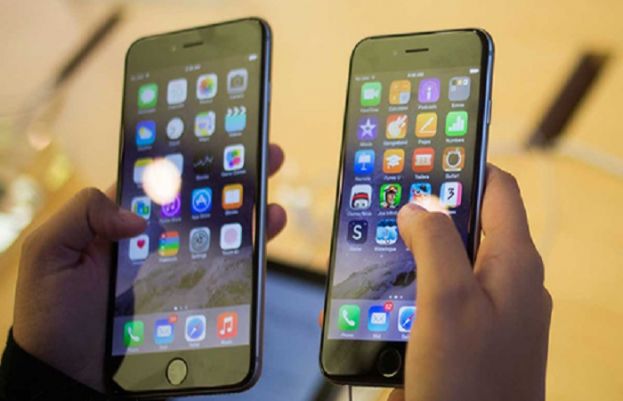
The DIRBS is an indigenous solution aimed to combat the use of smuggled or counterfeit sets which either serve to reduce tax revenues for the state or pose health problems to unsuspecting consumers.
“We recommend that consumers buy only PTA-approved phone sets after Oct 20. A consumer should text the International Mobile Equipment Identity (IMEI) number printed on the box of a new handset to 8484. But he or she should pay for the handset only after (s)he receives reply that the set is compliant with the regulatory standards,” said PTA’s director general for services, Talib Dogar.
Device identification system aims to tackle use of fake or smuggled sets which pose health hazards
The technology will help the authorities counter the issue of counterfeit devices that adversely affects the government, mobile phone operators, distributors and consumers, according to Mr Dogar.
These are the devices that are not registered with the Global System for Mobile Association (GSMA) and may be mass-produced by manufactures who do not comply with international standards of production, resulting in the proliferation of counterfeit, possibly hazardous, mobile phones.
PTA also said it had legalised the nearly 160 million compliant and non-complaint mobile devices, active on all the networks, before the launch of DIRBS. All these devices would not face any service interruption as they would not be blocked by DIRBS.
“However a consumer, who inserts a SIM card other than the one (s)he was using before Oct 20 in a non-compliant mobile device after the amnesty period, will be required to register the phone’s IMEI with PTA within two weeks to be able to continue using the handset,” Mr Dogar said.
Similarly, the consumers who purchase handsets abroad would have to register them in Pakistan by logging onto the PTA’s DIRBS website. After the one-time registration, the consumer would be able to operate the handset after furnishing information about identity card number, the IMEI of the handset and the country’s name where the set was bought, etc.
“In exceptional cases, such users on roaming services, they will continue to use their phones without interruption. However, as soon as they insert a local SIM they will have to register their mobile devices with PTA,” Mr Dogar said.
Another senior officer, Nouman Khalid, explained that in order to create public awareness PTA was sending SMSs to all subscribers about the status of their mobile devices.
The four types of responses that can be received by a subscriber inquiring about the status of the IMEI include “compliant devices”, which are the PTA-approved devices legally imported into Pakistan.
The other response is “valid devices”, which are the ones having valid IMEIs but which are not PTA-approved. To facilitate such users, PTA will auto-register the IMEIs active on mobile networks before Oct 20, and their status will be compliant after the said date.
Mr Khalid said that “non-compliant” devices are those where the IMEI is either not allocated by GSMA or is duplicated. To facilitate such users, PTA will auto-pair all such IMEIs active on mobile networks with specific SIMs before Oct 20. After that date, such users will be able to use their devices with paired SIMs only.
Finally, the “blocked devices” message indicates that the IMEI is blocked as this IMEI has been reported stolen earlier.
Mr Khalid said that after coming into effect the system could help the government increase revenues from $170 million to $200m on imported phone sets.
from Science & Technology - SUCH TV - SUCH TV https://ift.tt/2IRYZWV


No comments:
Post a Comment